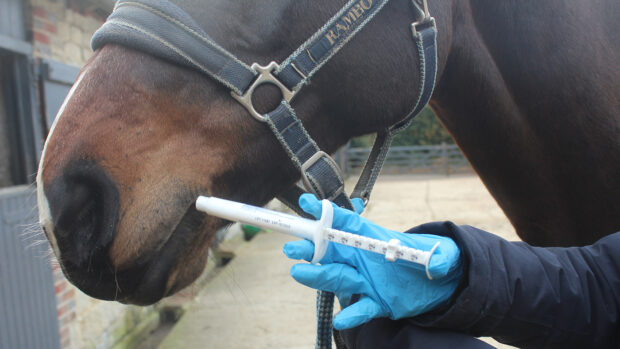Grazing, for many owners, is a limited resource that provides a significant source of food for their horse. Even if your horse is only turned out for one or two hours each day, the paddock is also the place where he will pick up the eggs of horse worms.
Managing your pasture in the right way can improve the quality of the grazing and reduce the number of worm eggs that your horse could pick up.
Top tips for effective pasture management
- Do not overstock paddocks. The more horses you have, the greater the potential worm output and infestation.
- Do not overgraze pasture. If your horse does not have access to sufficient grass he will be forced to graze the rough areas near droppings. These areas have a higher concentration of worm eggs increasingly the likelihood of your horse picking up eggs.
- Muck out pastures at least two or three times a week. This reduces potential contamination from larvae. It also gives owners an ideal opportunity to check the fencing, troughs and remove any litter and poisonous plants such as ragwort.
- Regularly test all horses for worms. Then treat those with a high worm burden with an equine deworming products that is effective against the relevant internal parasites.
- Rest pastures when possible. Ideally this means no grazing from autumn until mid-summer, which allows existing worm infestation to die off. This is not always possible, especially at livery yards when grazing is at a premium.
- Graze horses with sheep or cattle. Horse parasites are harmless to sheep and cattle, so by allowing them to graze with horses, they effectively remove horse worms from the pasture.
- Undertake a worm count on all new arrivals. If the horse has a significant worm burden, then treat with an appropriate deworming product and keep the horse stabled for 48 hours to avoid contaminating the pasture.
- If in doubt, seek expert advice from your vet or a Suitably Qualified Person (SQP).




